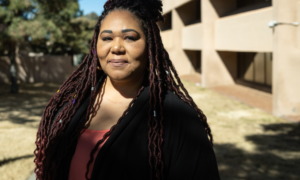 For most of my early adult life I remained steadfastly uncertain about what my future held. I had a bachelor’s degree in psychology and dreams of becoming a forensic psychiatrist. Or a nurse practitioner. Or a psychologist.
For most of my early adult life I remained steadfastly uncertain about what my future held. I had a bachelor’s degree in psychology and dreams of becoming a forensic psychiatrist. Or a nurse practitioner. Or a psychologist.
I really had no idea where my path would lead but I knew two things for sure: I enjoyed working with vulnerable and disenfranchised populations, and I was fascinated with the challenges presented by serious and persistent mental health issues. My journey to social work was an unconventional one and I have long admired young professionals who figured it out earlier than I did.
But as the years in my career have passed it is increasingly apparent that some young social workers have no earthly idea what they have gotten themselves into. So you think you want to be a social worker? Read on before you decide.
It is a disservice to enter into social work in hopes of fixing, saving, curing or changing people. Not only will you fail miserably at doing so (and turn into a cynic in the process) but this rescuer complex actually causes more harm than good.
Social workers should never work harder than their clients. A successful social worker must accept that every individual represents a unique set of abilities, strengths and preferences and that the distinctive essence of a client does not need to be fixed, saved, cured or changed but rather empowered, supported and encouraged.
Over the years I have heard too many social workers say, “Oh, I would never get therapy!” or “I don’t need help, I can handle it on my own.” Statements like these represent an unwillingness to address one’s own personal biases, trauma triggers and individual struggles.
The reality of this profession is that it is a profession based first and foremost on the development of meaningful interpersonal bonds between client and social worker. At least half of this relationship (the social worker) needs to be emotionally healthy and grounded in mindfulness. The “wounded helper” adage applies aptly here. A successful social worker must accept that they, too, are human and that they, too, need to address whatever biases and barriers to success, interaction and emotional well-being are present in their own lives before attempting to work with wounded individuals.
If you are a person who loves to have all the answers, you should know that social workers do not ever have all the answers. In fact, social workers rarely have any of the answers. Social work is more about sitting with people in their pain and suffering, staying next to them when they crumble and standing by them somewhere along their journey. One of my favorite aspects of social work is the opportunity to creatively problem-solve, but a successful social worker must understand that no matter how creative it gets, many problems simply cannot be solved.
A big heart and good intentions are not decent enough reasons to be a social worker. Neither is martyrdom. Social work is grueling, often unfulfilling, sometimes thankless and always underpaid work. Do not expect to feel noble or virtuous; social work is a choice of profession just like any other.
A successful social worker must have a durable and resilient sense of self and solid boundaries. A successful social worker must learn to compartmentalize work and practice indulgent and consistent self-care and self-compassion.
Social work is an amazing profession. It allows a glimpse into the vast richness and the strange, exquisite beauty found in the rawest parts of our human condition. Choose to be a social worker because you have a genuine interest in your fellow humans. Their strengths, their flaws, their journeys and their goals. Choose to be a social worker, not because you are tolerant and accepting, but because you are able to identify and work through the biases you have in a genuine and honest way.
Choose to be a social worker because you believe that already within every individual are the strengths to overcome adversity. Choose to be a social worker because you want to bear witness to the courage, the resiliency, the trials and the triumphs of fascinating individuals. Choose to be a social worker because you are organized, efficient and skilled at time management and prioritization. Choose social work if you never want to stop learning and growing, but only if you are able to occasionally shed your outdated and ineffective techniques and perspectives in the light of evolving evidence.
If you choose to be a social worker, do so with all of your heart and all of your soul but never forget that you must first (and always) take care of yourself.
Natalie Tuffield is a Denver licensed social worker with nearly a decade of experience in community mental health and homeless services. She also writes a blog, “Mostly Tragic Tales of Dating, Living & Working in the Mile High City.”
































